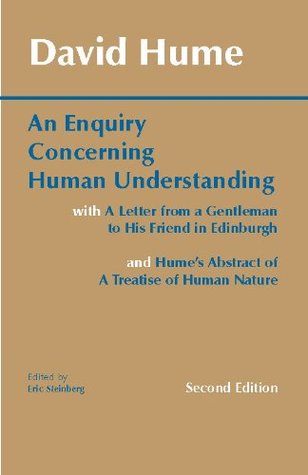Kindle Notes & Highlights
by
David Hume
Read between
July 31, 2021 - November 24, 2022
The most lively thought is still inferior to the dullest sensation.
Thus the observation of human blindness and weakness is the result of all philosophy, and meets us, at every turn, in spite of our endeavours to elude or avoid it.
Suppose again, that he has acquired more experience, and has lived so long in the world as to have observed similar objects or events to be constantly conjoined together; what is the consequence of this experience? He immediately infers the existence of one object from the appearance of the other. Yet he has not, by all his experience, acquired any idea or knowledge of the secret power, by which the one object produces the other; nor is it, by any process of reasoning, he is engaged to draw this inference.
Should a traveller, returning from a far country, bring us an account of men, wholly different from any, with whom we were ever acquainted; men, who were entirely divested of avarice, ambition, or revenge; who knew no pleasure but friendship, generosity, and public spirit; we should immediately, from these circumstances, detect the falsehood, and prove him a liar, with the same certainty as if he had stuffed his narration with stories of centaurs and dragons, miracles and prodigies.


